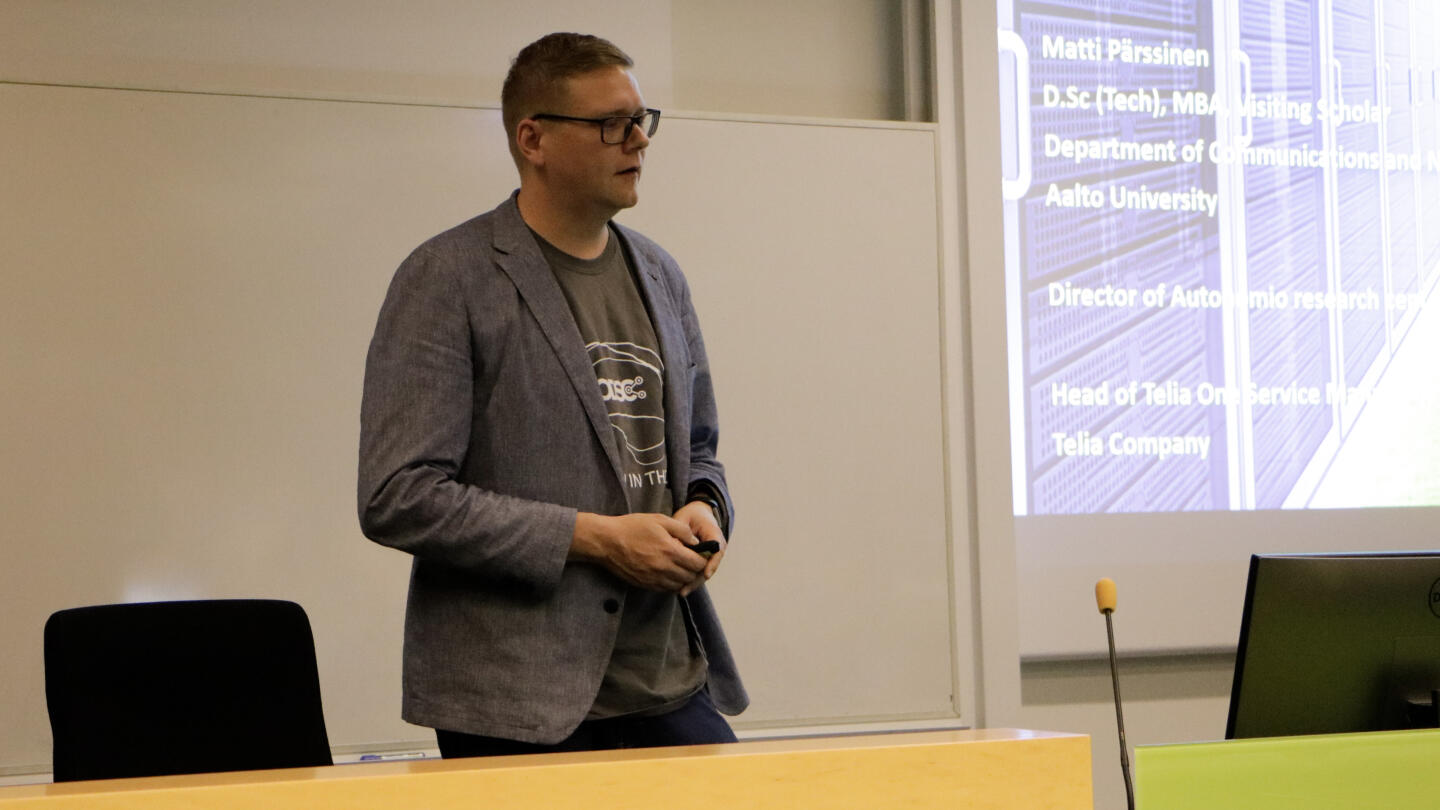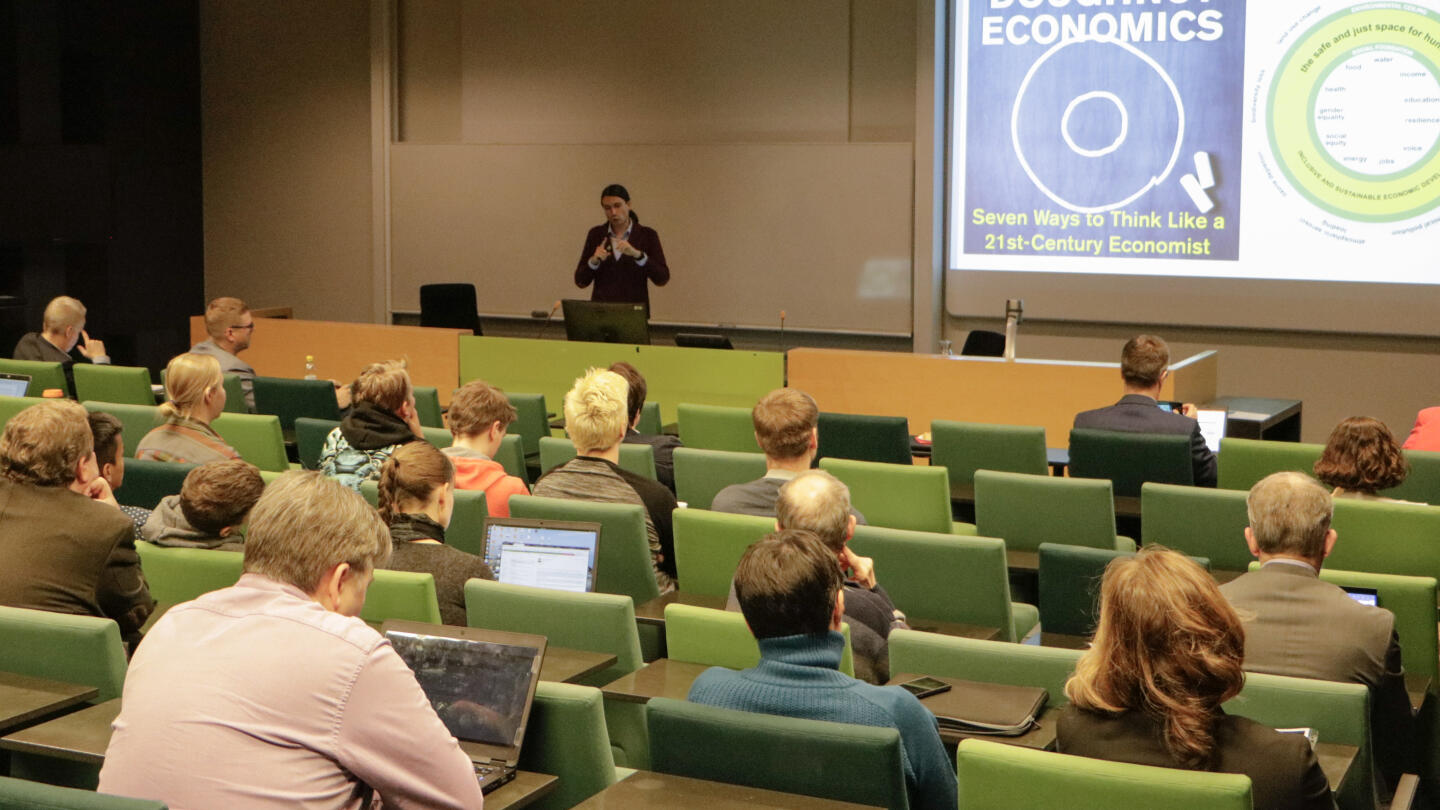Sustainability of ICT Poses Great Challenge for Future Energy Consumption
The energy consumption of the fast-growing ICT industry is expected to significantly increase in the future. Organised by the Steering Group for Sustainable Development, Digital futures thematic collaboration, and the Department of Future Technologies, the Towards Sustainable ICT seminar focused on the carbon footprint of the ICT industry and aimed at finding ways to decrease the energy consumption of the industry.
The Towards Sustainable ICT seminar highlighted an issue which is not yet prominent in the public debate. According to a number of assessments, the energy consumption of the ICT industry is currently around 10 percent of the total energy consumption of the world, and the proportion is only expected to rise.
The seminar was opened by the Director of TechCampus Turku, professor of the University of Turku Mika Hannula. He emphasised that the future proportion of the ICT industry of the total energy consumption of the world is difficult to predict, but according to some predictions, it could be as high as 20 percent in 2030. On the other hand, it is important to remember that ICT industry reduces the energy consumption of many other sectors.
Root of the problem in immense internet use
Kari Hiekkanen, researcher from Aalto University, explained that the emissions of the industry are caused by the immense consumption. However, in general, people are not aware of the problem.
– Many people are concerned about, for example, the emissions caused by flying, but don’t consider how much energy is consumed and emissions produced due to internet use. For example videos, artificial intelligence, and cryptocurrency produce significant emissions, Hiekkanen told.
In his new dissertation, Matti Pärssinen, who is also a researcher from Aalto University, has developed a method for calculating the energy consumption of internet data. He emphasised that different calculation methods can lead to very different results and uncertainty levels are high.
Awareness of the problem most important
The speakers of the seminar also considered ways to decrease the energy consumption. The CEO of CSC - IT Center for Science Ltd. Kimmo Koski presented the supercomputer Lumi currently being built in Kajaani. According to him, Finland has good prospects for developing more sustainable information and communications technology: the cool climate and the possibility to utilise the waste heat produced in cooling the units improve the sustainability of the industry.
The seminar also addressed the role of sustainability in the engineering education of the field. According to Jussi-Pekka Teini, who works on Engineering Sustainability at Academic Engineers and Architects in Finland (TEK ) interest group, the education of the field reflects the bigger trends of the society: at the moment, sustainability is not considered a very important aspect of education or professional life. The education lacks consideration of sustainability and ethics.
The speakers of the seminar agreed on the fact that there is no one simple solution for the problem of the rising energy consumption. In the final remarks, professor Ville Leppänen from the Department of Future Technologies of the University of Turku emphasised the importance of learning to understand the phenomenon better.
– ICT industry comprises of more than just technology. The industry should be seen as an entity which has an impact on the world around it. The most important aspect is acknowledging the issue. Furthermore, it is important to remember that every action counts, Leppänen summarised.
The seminar also included remarks from the representatives of the companies in the industry: Business Development Director of Telia Ainokaisa Saarinen and CEO of the Finnish Information Processing Association (TIVIA) Jussi Nissilä.
The audience of the seminar included a large group of upper secondary school students mostly from the Kerttuli Upper Secondary School ICT Track and the Turun Suomalaisen Yhteiskoulu (TSYK) Upper Secondary School Natural Sciences Track. In TSYK, the students had discussed the topic beforehand on a course about energy and had also organised a recycling event in which they collected old cellphones. The low recycling rate of cellphones and other devices forms part of the sustainability problem of the ICT industry. Only a fraction of the devices and their materials, e.g. gold, are recycled.
Upper secondary school student Santeri Heininen had taken the course and consequently already had some knowledge about the sustainability of the ICT industry.
– Before taking the course I didn’t know about the problematics of using cellphones and internet. The energy consumption of internet use is not discussed much. The metals needed for cellphones and the unethical mining associated with them is also missing from the public discussion, Heininen says.


